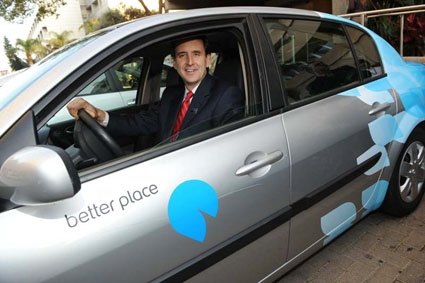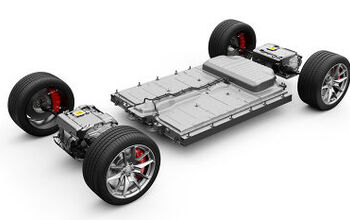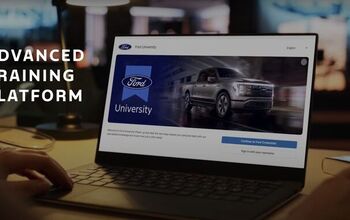Obama Will Adopt 14 Month Old Child From Israel

Apart from keeping an eye on the imploding world economy, North Korea’s nuclear ambitions, Iran’s nuclear ambitions, the war in Iraq, the war in Afghanistan, a Russia that is flexing its muscles, and other minor annoyances, “the incoming Obama administration is closely monitoring the innovative electric car project being developed by Israel’s Better Place company,” writes the Jerusalem Post. Idan Ofer, chairman of Better Place, says [hopes?] that Obama “may be adopting it.” Also according to Ofer “a leading US car manufacturer” is “putting together a team” to work on the project. Now who might that be? “Renault-Nissan agreed 18 months ago to build the first cars, and will be mass-producing hundreds of thousands of the electric-powered vehicles by 2010,” Ofer said to the paper. So why the need for a leading US car manufacturer? For all we know, the US car manufacturers are leading straight into C11.
Ofer doesn’t suffer from a lack of self-esteem. When “you hear announcements” from the incoming administration about reviving Detroit with electric cars, job creation in battery factories and modernizing the national electricity grid, the Better Place chairman reckons “you’ll know that it will have come from us.”
Surprisingly, the Renault-Nissan vehicles will cost about the same as conventional cars for now. Ultimately, though, allegedly, it will be cheaper. Ofer also claims they have comparable acceleration, can reach comparable speeds (of 150 to 180 kph) and can run 150-200 kilometers on a single battery. In short: Miracles on wheels.
Better Place was established 14 months ago by entrepreneur Shai Agassi. Despite the confidence, the company seems to suffer from a little bit of an identity crisis. According to Wikipedia, “Better Place is a California-based, venture-backed company that aims to reduce global dependency on petroleum through the creation of a market-based transportation infrastructure that supports electric vehicles, providing consumers with a cheaper, cleaner, sustainable, personal transportation alternative. Better Place will build its first Electric Recharge Grids in Denmark, Israel and Australia where the electricity will be generated by renewable energy.” According to their website, “Better Place is working to build an electric car network.”
So what are they? A car builder that will be adopted by Obama the minute he enters office? Or a builder of recharge stations?
The San Jose Business Journal is convinced that Better Place is in the grid business: “San Francisco Mayor Gavin Newsom, Oakland Mayor Ron Dellums and Reed announced last month to transform the Bay Area into the “Electronic Vehicle Capital of the United States.” Palo Alto-based startup Better Place, which is building electric vehicle networks powered by renewable energy, is leading the effort.”
A case of mistaken identity? Two Better places maybe, one in CA, one in Israel? Not so: both Better Places were founded by Shai Agassi. The EV business sure is wild and wooly.

Bertel Schmitt comes back to journalism after taking a 35 year break in advertising and marketing. He ran and owned advertising agencies in Duesseldorf, Germany, and New York City. Volkswagen A.G. was Bertel's most important corporate account. Schmitt's advertising and marketing career touched many corners of the industry with a special focus on automotive products and services. Since 2004, he lives in Japan and China with his wife <a href="http://www.tomokoandbertel.com"> Tomoko </a>. Bertel Schmitt is a founding board member of the <a href="http://www.offshoresuperseries.com"> Offshore Super Series </a>, an American offshore powerboat racing organization. He is co-owner of the racing team Typhoon.
More by Bertel Schmitt
Latest Car Reviews
Read moreLatest Product Reviews
Read moreRecent Comments
- MaintenanceCosts Whenever the topic of the xB comes up…Me: "The style is fun. The combination of the box shape and the aggressive detailing is very JDM."Wife: "Those are ghetto."Me: "They're smaller than a Corolla outside and have the space of a RAV4 inside."Wife: "Those are ghetto."Me: "They're kind of fun to drive with a stick."Wife: "Those are ghetto."It's one of a few cars (including its fellow box, the Ford Flex) on which we will just never see eye to eye.
- Oberkanone The alternative is a more expensive SUV. Yes, it will be missed.
- Ajla I did like this one.
- Zerofoo No, I won't miss this Chevrolet Malibu. It's a completely forgettable car. Who in their right mind would choose this over a V8 powered charger at the rental counter? Even the V6 charger is a far better drive.
- Offbeat Oddity Nope, I won't miss it. I loved the 2008-2012 Malibu, but the subsequent generations couldn't hold a candle to it. I think the Impala was much more compelling at the end.


































Comments
Join the conversation
The problem with the battery exchange plan is that it requires vast amounts of money be spent on battery exchange stations when the technology for recharging electric vehicles while going down the road is already available, yet not commercialized. Any infrastructure investment should be adaptable to advances in technology or it will soon be obsolete. Battery exchange stations don't fit the criteria of adaptability to innovations in charge methods, or advances in battery technology. For example, here's a contactless inductive charging solution that is already patented and ready for development commercially. http://uniservices.co.nz/pageloader.aspx?page=1484d8d0d82 With charge strips embedded in the road every quarter mile or so, and at stop lights, and in parking lots, or your garage floor this method of contactless inductive energy transfer can be integrated with the smart grid and electric vehicles with existing battery technology and give electric vehicles unlimited range without the need to plug in or exchange your battery at all. Many other companies offer recharging capability for electric vehicles, you can find many other examples here http://EVtransPortal.com/cerip.html It's too early in electric vehicle development to fixate on any one solution at the present time, unless it is a solution which is adaptable to further innovations, battery swap stations will involve a huge cost to create, and don't fit the criteria of adaptability to future innovation.
Link to my explanation of why BEVs will never be competitive.